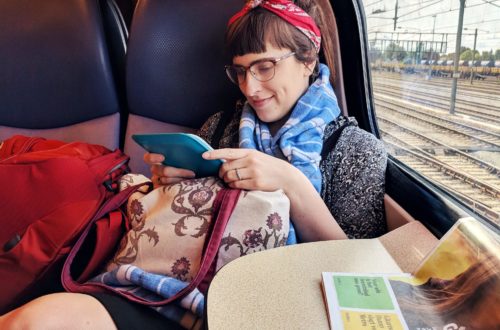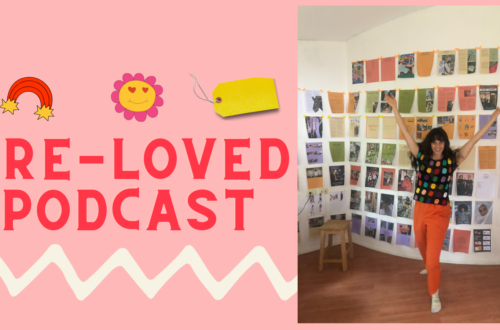
FAQs About Backpacking Europe
Travel is a huge part of my life, and since I’ve started sharing my trips on the internet, I’ve been keeping a list of FAQs about backpacking Europe, with the plan that I would round them all up for you here on the blog. Today is that day!
So a little about the travel I’ve done before we jump into the FAQs about backpacking Europe. I’ve done three, going on four European backpacking adventures. The first trip I did was just before my senior year of college with a group of other women. We traveled to London, Bath, and Brighton.
Next, for our our honeymoon, Curtis and I did a three week adventure through some major Western European cities. Here’s a big ole round-up I did after that trip, addressing things like riding the Eurorail and what I packed in great detail.
Last summer, we did another long trip, this time centered around the Netherlands, Germany and Belgium. This summer, we just booked a trip through Poland, Slovakia, and Hungary. Together, we’ve traveled north to Stockholm, west to Brussels, east to Bratislava, and south to Munich.
Now for the FAQs about backpacking Europe!
I asked for your questions on Instagram, and I’m going to answer them today in as much detail as possible. Please know that every person’s trip is going to be a unique experience, and I can only answer these questions from my own perspective. If I don’t know something, I’ll try to link you to some other resources!
Where should I travel in Europe?
This is so personal to every traveler! The advice I can give is that for your first trip, I would suggest staying in a more compact region so you’re not racing all over the continent.
Here are the city guides I’ve made with specific recommendations about what to see, drink, eat, and do:
- Stockholm, Sweden
- Copenhagen, Denmark
- Hamburg, Germany
- Berlin, Germany
- Prague, Czech Republic
- Pilsen and Brno, Czech Republic
- Bratislava, Slovakia
- Vienna and Salzburg, Austria
- Munich, Germany
- Dresden, Germany
- Amsterdam, Netherlands
- Rotterdam, Netherlands
- Dusseldorf, Germany
- Brussels, Belgium
- Budapest, Hungary
- Kosice, Slovakia
- Ostrava, Czech Republic
- Warsaw, Poland
- Wrocław, Poland
My favorite places to visit as a backpacker have been: Hamburg, Berlin. Bratislava, Amsterdam, and Brussels. I enjoyed these cities because they were walkable, affordable, and not overly crowded. I also base a lot of my traveling around beer and food, so these cities stole my heart!
How much should I budget for backpacking Europe?
Your major travel expenses will include:
- Flights
- Eurorail pass or train tickets *optional
- Travel Insurance *optional
- Lodging – hotels, hostels, Airbnb
- Daily expenses – food, drinks, activities etc.
I’ve done three international trips to Europe. We always fly out of Chicago O’Hare, and we have flown into Stockholm, Amsterdam, and Berlin. My international flights have ranged from $460-$585/person, all fees and taxes included.

I will include some tips for researching cheap flights later on in this post.
For lodging, you can look on AirBnb and HostelWorld to get an idea for the cost of lodging in the cities you’re considering. Depending on how flexible you are about where you go, sometimes you might choose one city over another due to the price per night of the stay.
Personally, we set our lodging price at $60-$90/night at an AirBnb, but the average costs totally depend on the city — I have stayed in very nice AirBnb’s for as low as $50, and we’ve also been priced out of cities and adjusted our route because of it.
How do you budget for your trips?
I recommend you break down the total estimated cost of your trip into a monthly savings figure, and then set up an automatic transaction in your bank account to move this money, so you have no choice but to put it away for travel each month. Travel is definitely a privilege, and boy do I feel spoiled to be able to prioritize travel and budget for it monthly. I know that is simply not possible for everyone. But a lot of people asked me about budgeting, and really there is no other way to budget for a big trip than to incrementally save up.

Additionally, years ago, my husband and I decided that we would never buy each other gifts for holidays like birthdays, anniversaries, and Christmas. Instead we put that $100 or so that we would usually have spent on exchanging gifts and a meal out toward travel. It won’t work for everyone, but we love it — these trips are the best gifts we could ever give each other.
How do you handle cash and foreign currencies when abroad?
I don’t recommend carrying a ton of cash when you travel, no more than $100 in cash. You just never know what is going to happen while you’re traveling anywhere.
ATMs in Europe, similar to in the States, charge a transaction fee when you take out cash, and that amount depends on your bank card. We opened a Charles Schwab account specifically for the purpose of taking out cash in Europe because they have no foreign withdrawal fees. You usually still have to pay an ATM fee, but with this specific card you don’t have the foreign charge on top of it.
We also opened a Capital One Quicksilver card, which has no foreign transaction fees. We put our flights and insurance on the card at the get-go to leverage the opening bonus and get cash back. If you’d like to open the same card, this is a referral link. It costs you nothing to use, and the referral bonus I will receive helps support this blog!
A card will get you pretty far in most major cities in Europe, but compared to the States, cash-only is definitely more common, so prepare yourself to need options.
Do I need travel insurance, and if so, what coverage?
We purchased our travel insurance through World Nomads, and the policy was through Nationwide Mutual Insurance Company. World Nomad plans are about $100-200 and getting a quote is very simple.
These plans insure trip cancellation, lost or damaged baggage, and –most importantly –medical expenses and medical emergencies. We always purchase travel insurance.
What are some of the more affordable cities you’ve visited?
Eastern Europe is much more affordable than Western Europe. The most affordable city I’ve visited is Bratislava, Slovakia. In my research for our upcoming trip, I can tell Poland and Hungary will also be affordable.

Should I stay in a hostel?
I personally prefer AirBnbs because of the kitchen and the privacy, and the price doesn’t differ all that much between an AirBnb and a quality hostel. But if you’re in your early 20s and looking for more of a party-vibe, or you’re travelling alone and looking to meet people along the way, then you should definitely consider hostels! Use Hostel World as your resource.
When should you book flights, lodging, transport, etc?
We usually book flights 5-6 months in advance. The more flexible you can be with when and where you travel, the better your possibility of deals. We keep an eye out on Google Flights and when we see a deal, we pretty much act immediately and book it. Flight deals don’t stick around forever.
The past couple of trips, we’ve booked AirBnbs about 3 months in advance. This gives us more options and deals.
However, the first time we went to Europe, we booked all of our lodging only one night in advance. This allowed us to get some AMAZING deals, but other times we couldn’t find any options for a decent price, so we had to pick a different city to visit than the one we planned. It just depends on the amount of flexibility you have with your route and the style of travel you prefer.
How to get around using the trains?
On our first trip to Europe, we purchased a Eurorail pass, and here is a blog post where I discuss train details down to the last detail.
Now we prefer purchasing train tickets in advance. Most rail sites start selling tickets 60-90 days in advance, and you will definitely save by booking ahead rather than day-of.

Should you fly within Europe?
Flights within Europe are pretty affordable. On our first backpacking trip, we flew from Berlin to Stockholm at the end of our trip in order to catch our flight home out of Stockholm without backtracking. The flight only cost €58/ticket, luggage included. It was obviously a huge time saver considering the distance between Berlin and Stockholm.
However, I much prefer traveling by train because I find it less stressful, and it’s better for the environment. This is a personal preference, but cost is not really the heart of the issue.
What and how to pack?
Curtis and I have the Osprey Farpoint- 40L, and we got them online from REI. I need to do an updated packing guide for backpacking Europe because I’ve learned a lot along the way, but for now I would point you to Saavy Backpacker as a resource.
How did you handle your cell phone and internet while abroad?
We have never purchased an international plan because wifi is so prevalent we’re usually able to connect when we need it. When traveling, I just pop my phone on airplane mode and use vacation as a time to unplug.
Instead of using your phone’s GPS, get the free app Maps.me which allows you to download and save maps of any city that you can use offline. We downloaded maps for all our locations and as we found restaurants or sights we wanted to visit we “pinned” them in the map so we could easily find them and route to them, even without wifi. This app is a lifesaver.
Finally, you will need an adapter (plugs are different in Europe and require an adapter), and you might also want a multi-port charger for your tech.
What do you wish you knew the first time you backpacked Europe?
To travel slowly and don’t try to see everything all in one go. See what you can and enjoy what you do, but know that you won’t see everything and go easy on yourself so you have the energy to have a good time.
Until next time — let’s chat on Instagram or Twitter, where I’m @brumeanddaisy. You can listen to my playlists here on the blog, or follow me on Spotify! Stay tuned in because I put them out monthly. Of course, please find me over on Goodreads. Let me know what I should read and review next.
And don’t forget, subscribe to my podcast for new episodes of Pre-Loved Podcast– Season 3 returns June 17!
And my newest thing… I’ve started a newsletter! It’s called The French Press — think, slowly sipping your coffee on a weekend morning kind of vibes.
If you’re into plants, ethical fashion, slow living, travel, craft beer, vintage clothes, cruelty-free products, podcasts, pop culture, sustainability, and the like…. you won’t want to miss it. Drop your email here.















